Through Years of Litigation With State and DMV Over Fatal Accident, PSEG Driver Fights to Clear His Name
The last five years of criminal and civil legal battles for PSEG worker Michael Pepe, which began after a 2014 head-on crash with a car whose driver was killed, "has been a process for him, because obviously he had to deal with the tragic accident itself," and "he's had the possible results of the legal process hanging over his head at every stage," said his lawyer, Donna Aldea.
September 10, 2019 at 06:02 PM
11 minute read
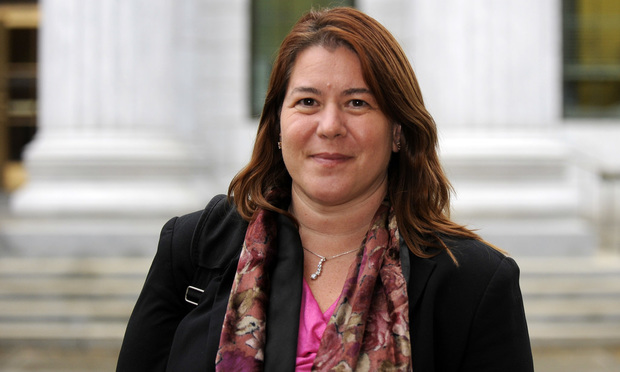 Donna Aldea/photo by Tim Roske
Donna Aldea/photo by Tim Roske
About two months after Michael Pepe was cleared of criminal charges tied to a fatal car accident in which his truck hit another driver head-on, he had to appear at what is commonly known as a Department of Motor Vehicles fatality hearing.
The hearing, and its looming result, meant that the travails for the then-55-year-old Pepe, including a serious threat to his livelihood as a PSEG worker who must drive to sites, were not over. He could easily lose his driver's license or face other serious DMV penalties, his lawyers had warned him.
The scale of Pepe's pain and anxiety couldn't begin to compare to the tragedy that had struck the family of accident victim Barbara Tocci. For Pepe, though, he'd argued from the start that he was not responsible for her death. And while the criminal charges he'd faced were ultimately dismissed—the most serious one outright, two lesser ones after he performed community service—it was the DMV process and what an agency judge said about his responsibility for the accident, along with the appeals it sparked, that would last for years.
In December 2016, just a few months after the criminal process ended, Pepe received the news that his lawyers at Barket Epstein Kearon Aldea & LoTurco recall today impacted him severely: A DMV administrative law judge ruled that his driving privileges would be stripped for half a year, meaning that his job would almost certainly be lost. And the judge indicated in writing that he was culpable in Tocci's death.
It was a moment in the DMV process, the attorneys told the Law Journal in interviews, when many clients will fold and simply accept the finding, and choose to save their money rather than continue to pay lawyer fees in an often long-shot effort to overturn the ruling.
But not Pepe, said Donna Aldea, a Barket Epstein partner in Garden City and head of the litigation boutique's appellate practice. The PSEG power line worker was "confident he would fight it," she recalled—he was distraught but also optimistic and intent on clearing his name.
Now, years later and because of an Appellate Division, Second Department decision issued late last month, Pepe has been cleared of wrongdoing at the DMV level. The court took the rare step of overturning a DMV administrative appeals board that affirmed the administrative law judge's ruling.
In addition, as a result of the reversal, Pepe's driving privileges, which he'd managed to hold on to through the years because of Barket Epstein-won legal stays, will be restored.
Reached for comment Tuesday, Philip Tocci, Barbara's father, said that the Tocci family still believes Pepe bears responsibility for Barbara's death. The lawyer for Barbara Tocci's estate declined to comment for this report. In 2015, Susan Tocci, Barbara's sister, reportedly said outside of a criminal courtroom that she was "relieved to see the district attorney has finally made a move on this case" and brought charges, and that "the evidence [against Pepe] was there the whole time."
Pepe, on learning of last month's Second Department decision, was "incredibly relieved and overjoyed at the fact that all this is finally over, and that his job is secure, his livelihood is secure," Aldea said in an interview.
Then she said that the last five years of criminal and civil legal battles for Pepe, which began after a 2014 crash with Tocci's car as both drove along a wet, pothole-ridden road, "has been a process for him, because obviously he had to deal with the tragic accident itself."
And "he's had the possible results of the legal process hanging over his head at every stage," she said.
The state Attorney General's Office, which represented the DMV before the Second Department and throughout parts of an elongated legal process in which Pepe sought to overcome DMV rulings, referred the Law Journal to the DMV for comment.
DMV spokeswoman Lisa Koumjian said in an email that the agency was reviewing the Second Department's Aug. 28 decision. She did not comment more broadly on Pepe's case, and did not respond to a specific question about whether the DMV may seek leave to appeal the decision.
In its ruling, the Second Department wrote, "Here, the determination [by Administrative Law Judge Andrew Girdhari] that the petitioner [Pepe] violated Vehicle and Traffic Law § 1180(a) is not supported by substantial evidence.
"There is no evidence to support the determination that [Pepe] operated his vehicle at a speed greater than reasonable and prudent under the circumstances," the unanimous four-justice panel continued, and "there was no evidence to show that [Pepe]'s speed contributed to the accident or that [his] vehicle would not have been damaged by the pothole [in the road] had [he] been traveling at a lesser rate of speed."
It took Pepe and a three-lawyer Barket Epstein team—Aldea, name partner Steven Epstein, and senior associate Alexander Klein—pushing through layers of litigation to reach that result.
The events began, according to news reports and Barket Epstein, around 7:57 a.m. on Jan. 16, 2014. That's when a PSEG utility truck driven by Pepe crossed two southbound lanes of traffic on Flanders Road (also known as Route 24) in Southampton and smashed into a 2000 Ford Explorer being driven north by Tocci.
Tocci, 47 and from Hampton Bays, died at the scene. Still, Pepe was not expected to have criminal charges filed against him, police said at the time, according to news reports. He also was not issued any traffic tickets, according to a DMV appeals board decision issued years later.
Moreover, Southampton Town police at some point in 2014 said that potholes on Flanders Road had played a role in the crash, according to news reports, and the state later repaved parts of the road.
Nevertheless, about a year after the crash, Pepe was charged with criminally negligent homicide, reckless driving and use of a portable electronic device while driving, according to reports and Epstein of Barket Epstein.
As part of the case, the Suffolk County District Attorney's Office alleged that Pepe had been having an extended text message conversation while driving, shortly before the crash.
Pepe's defense, said Epstein, who handled it, was fairly straightforward: Flanders Road was notoriously riddled with potholes, and on Jan. 16, 2014, Pepe's truck, while traveling two miles an hour under the posted 55 mph speed limit, struck one. In turn, his truck's vital, direction-maintaining U-Bolt broke—after which loss of control happens with any vehicle—meaning that Pepe could no longer steer or maneuver the truck in any way.
"He would turn the wheel of the car, but the tires wouldn't budge," Epstein said, "and he described the sensation he felt as 'floating.'"
Pepe also maintained that he hadn't been texting just before or during the time of the accident.
Later in 2015, when Suffolk County Supreme Court Justice Fernando Camacho dismissed the most serious charge brought against Pepe, criminally negligent homicide, the judge noted that Pepe's final outgoing text was at 7:52 a.m. That was five minutes before the first 911 call reported the crash, news reports said.
And by 2016, the lesser criminal charges Pepe faced were dismissed as well, although he and his lawyers agreed that he would complete 140 hours of community service by participating in anti-distracted-driving efforts in exchange for the charges being dropped.
Pepe said in a statement at the time, according to his lawyers, who shared it with the Law Journal: "There is not a day that goes by that I don't think about Barbara Tocci. I pray for her soul and her family, and hope for healing. I think about Barbara every time I get in the car and during the course of every drive." The statement remains true today, the lawyers said. (Conversely, though, Philip Tocci maintains that Pepe "was texting, and that's why we have a big sign on Flanders Road saying 'Don't Text and Drive' with Barbara's picture on it.")
The criminal case closed for Pepe, but the DMV fatality—or "fatal case"—hearing, now set for Nov. 30, 2016, still loomed. There were positive signs at the hearing, recalled Epstein. For one, no law enforcement officers appeared. And also the trial lawyer elicited strong testimony from Steve Rickard, an accident scene reconstruction expert, who said that the accident was clearly caused by the utility truck hitting the pothole and its U-Bolt breaking.
Nevertheless, on Dec. 28, 2016, Girdhari wrote that "such [pothole] conditions of the roadway should have alerted the Respondent [Pepe] to the actual and potential hazards that existed."
Moreover, he wrote, "Even if I accept Mr. Rickard's testimony that the vehicle [Pepe] was driving broke its U-Bolt as a result of hitting the pothole … such does not excuse [Pepe's] poor judgment of speed on a hazardous roadway prior to hitting" Tocci's vehicle. Therefore, said Girdhari, Pepe "violated Section 1180(a), of the [state] Vehicle and Traffic Law, in operating the vehicle at a speed greater than is reasonable and prudent under the conditions considering the actual and potential hazards that existed."
Deeply distressed by the decision, especially by its faulting him for "poor judgment … on a hazardous roadway," Pepe agreed to gear up first for the mandatory next-step appeal to the DMV's administrative appeals board.
The DMV board, though, in a July 25, 2017, decision, affirmed Girdhari's ruling, writing in part that "the testimony of the witnesses summarized above, together with the documentary evidence was sufficient to support all of the findings" by Girdhari. The board also wrote that the half-year license-suspension penalty "does not shock one's sense of fairness, especially since the motorist [Tocci] died from her injuries."
Still, Pepe decided to plow on, paying his legal fees while aiming to upend the DMV's decisions. The lawyers filed a CPLR Article 78 petition in Suffolk County Supreme Court.
The case went to Justice John Rouse, who considered it for many months and who, according to Klein, "had clearly done his homework" on it. But in January 2018, Rouse transferred the matter to the Second Department without ruling on the merits.
After briefing and argument before the Second Department, said Aldea, panel Justices Reinaldo Rivera, Colleen Duffy, Francesca Connolly and Angela Iannacci delivered an opinion in Pepe's favor.
"There was no evidence to show that [Pepe's 53 mph] speed contributed to the accident or that the vehicle would not have been damaged by the pothole had the petitioner been traveling at a lesser rate of speed," the justices wrote.
For Klein, such a statement cut to the core of the matter.
"Nobody throughout the entire history of this litigation … has ever identified a speed at which this tragedy would not have transpired," Klein told the Law Journal, adding that Pepe "had the misfortune to be in this particular car, on this particular road, at this particular time."
Aldea, speaking of the lengthy Article 78 appellate process, said that petitions seeking to overturn a government administrative ruling "are rarely granted, because the standard of review is really so high."
"It's a difficult burden to prove that there was no support for the ALJ's determination," she said.
Meanwhile, said Epstein, who's been handling traffic and motorist-based cases for 27 years, "I think the ALJ looked at the case, as seems to be common in fatality hearings, and saw that somebody died and decided that there has to be [a] penalty."
"And that's not right," he said, "because sometimes the death is the result of an unfortunate accident."
The litigator then pointed to Pepe's resolve in pushing through years of litigation in order to reach the Second Department ruling, and he said of the administrative rulings, "It was wrong," and "it was his career and his livelihood on the line."
"But the sad part," he continued, "is that for every Michael Pepe, there are perhaps a thousand other motorists who don't have the resources to take on the Department of the Motor Vehicles and the ALJ, and instead sacrifice their career or livelihood" when they decide that going through years of litigation and expense just isn't worth it.
This content has been archived. It is available through our partners, LexisNexis® and Bloomberg Law.
To view this content, please continue to their sites.
Not a Lexis Subscriber?
Subscribe Now
Not a Bloomberg Law Subscriber?
Subscribe Now
NOT FOR REPRINT
© 2025 ALM Global, LLC, All Rights Reserved. Request academic re-use from www.copyright.com. All other uses, submit a request to [email protected]. For more information visit Asset & Logo Licensing.
You Might Like
View All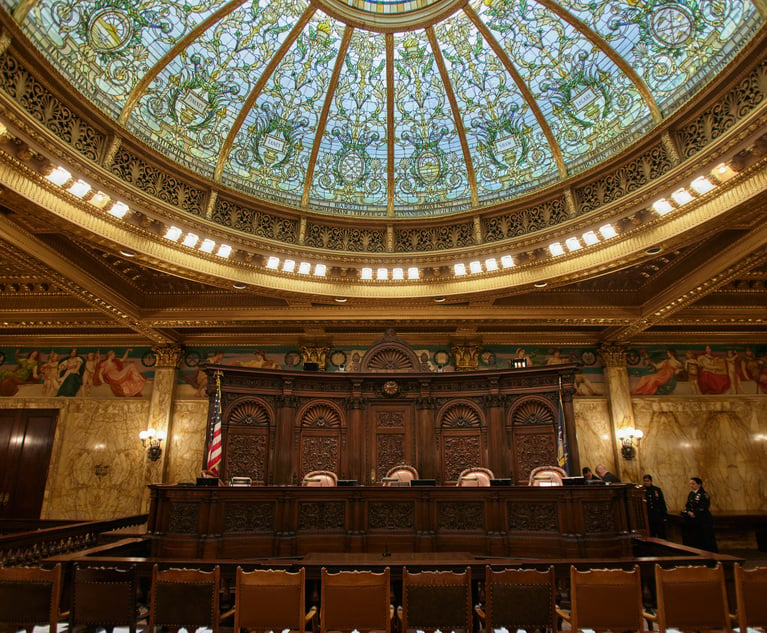
Decision of the Day: Trial Court's Sidestep of 'Batson' Deprived Defendant of Challenge to Jury Discrimination
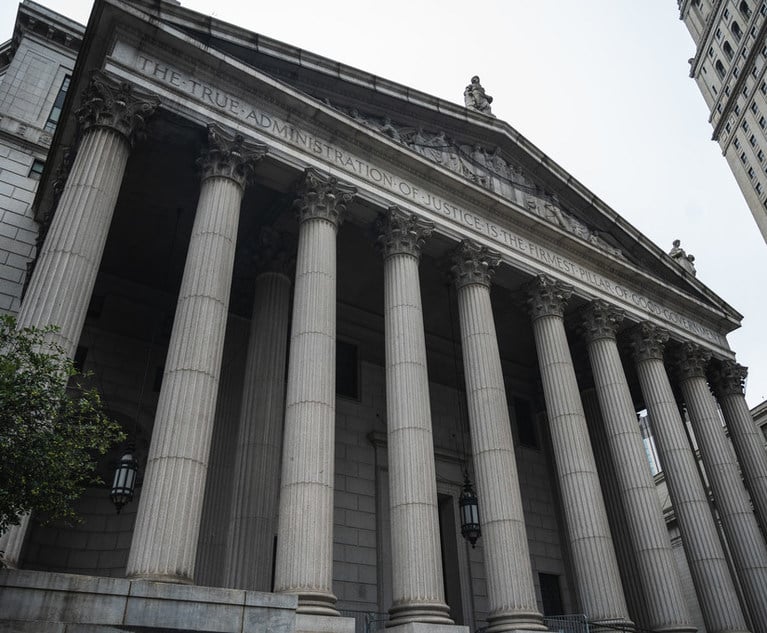
Decision of the Day: Commercial Division Finds Defendant Engaged in Unfair Competition Against Plaintiff
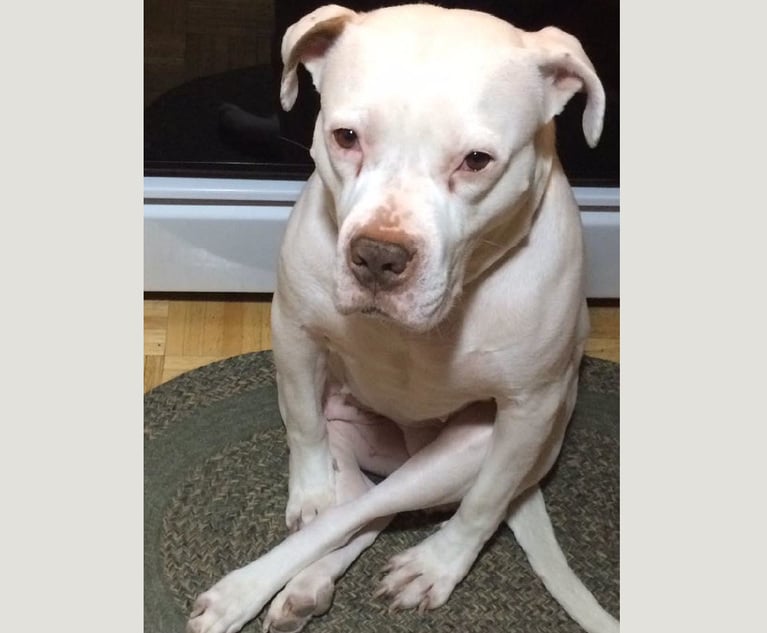
Decision of the Day: Court Rules on Judgment Motions Over Police Killing of Pet Dog While Executing Warrant
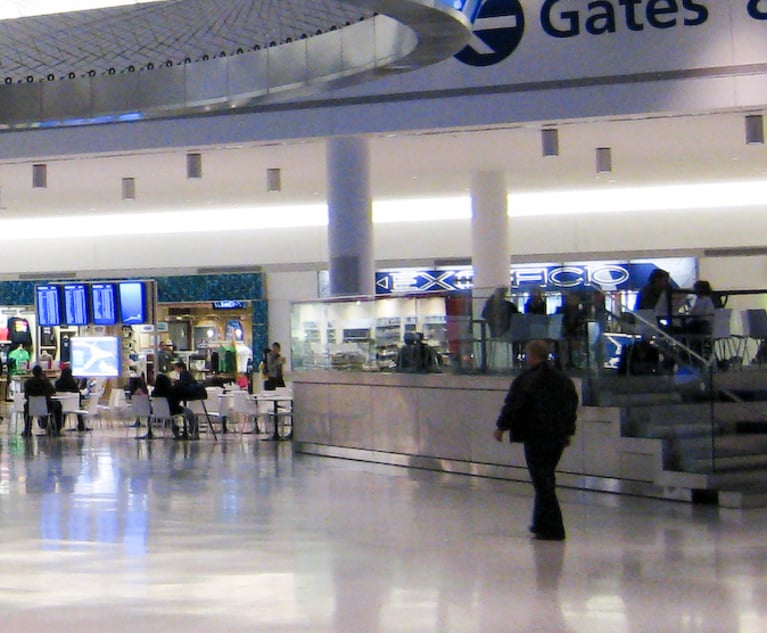
Decision of the Day: JFK to Paris Stowaway's Bail Revocation Explained
Trending Stories
- 1Bass Berry & Sims Relocates to Nashville Office Designed to Encourage Collaboration, Inclusion
- 2Legaltech Rundown: McDermott Will & Emery Invests $10 Million in The LegalTech Fund, LexisNexis Releases Conversational Search for Nexis+ AI, and More
- 3The TikTokification of the Courtroom
- 4New Jersey’s Arbitration Appeal Deadline—A Call for Clarity
- 5Law Firms Look to Gen Z for AI Skills, as 'Data Becomes the Oil of Legal'
Who Got The Work
J. Brugh Lower of Gibbons has entered an appearance for industrial equipment supplier Devco Corporation in a pending trademark infringement lawsuit. The suit, accusing the defendant of selling knock-off Graco products, was filed Dec. 18 in New Jersey District Court by Rivkin Radler on behalf of Graco Inc. and Graco Minnesota. The case, assigned to U.S. District Judge Zahid N. Quraishi, is 3:24-cv-11294, Graco Inc. et al v. Devco Corporation.
Who Got The Work
Rebecca Maller-Stein and Kent A. Yalowitz of Arnold & Porter Kaye Scholer have entered their appearances for Hanaco Venture Capital and its executives, Lior Prosor and David Frankel, in a pending securities lawsuit. The action, filed on Dec. 24 in New York Southern District Court by Zell, Aron & Co. on behalf of Goldeneye Advisors, accuses the defendants of negligently and fraudulently managing the plaintiff's $1 million investment. The case, assigned to U.S. District Judge Vernon S. Broderick, is 1:24-cv-09918, Goldeneye Advisors, LLC v. Hanaco Venture Capital, Ltd. et al.
Who Got The Work
Attorneys from A&O Shearman has stepped in as defense counsel for Toronto-Dominion Bank and other defendants in a pending securities class action. The suit, filed Dec. 11 in New York Southern District Court by Bleichmar Fonti & Auld, accuses the defendants of concealing the bank's 'pervasive' deficiencies in regards to its compliance with the Bank Secrecy Act and the quality of its anti-money laundering controls. The case, assigned to U.S. District Judge Arun Subramanian, is 1:24-cv-09445, Gonzalez v. The Toronto-Dominion Bank et al.
Who Got The Work
Crown Castle International, a Pennsylvania company providing shared communications infrastructure, has turned to Luke D. Wolf of Gordon Rees Scully Mansukhani to fend off a pending breach-of-contract lawsuit. The court action, filed Nov. 25 in Michigan Eastern District Court by Hooper Hathaway PC on behalf of The Town Residences LLC, accuses Crown Castle of failing to transfer approximately $30,000 in utility payments from T-Mobile in breach of a roof-top lease and assignment agreement. The case, assigned to U.S. District Judge Susan K. Declercq, is 2:24-cv-13131, The Town Residences LLC v. T-Mobile US, Inc. et al.
Who Got The Work
Wilfred P. Coronato and Daniel M. Schwartz of McCarter & English have stepped in as defense counsel to Electrolux Home Products Inc. in a pending product liability lawsuit. The court action, filed Nov. 26 in New York Eastern District Court by Poulos Lopiccolo PC and Nagel Rice LLP on behalf of David Stern, alleges that the defendant's refrigerators’ drawers and shelving repeatedly break and fall apart within months after purchase. The case, assigned to U.S. District Judge Joan M. Azrack, is 2:24-cv-08204, Stern v. Electrolux Home Products, Inc.
Featured Firms
Law Offices of Gary Martin Hays & Associates, P.C.
(470) 294-1674
Law Offices of Mark E. Salomone
(857) 444-6468
Smith & Hassler
(713) 739-1250






